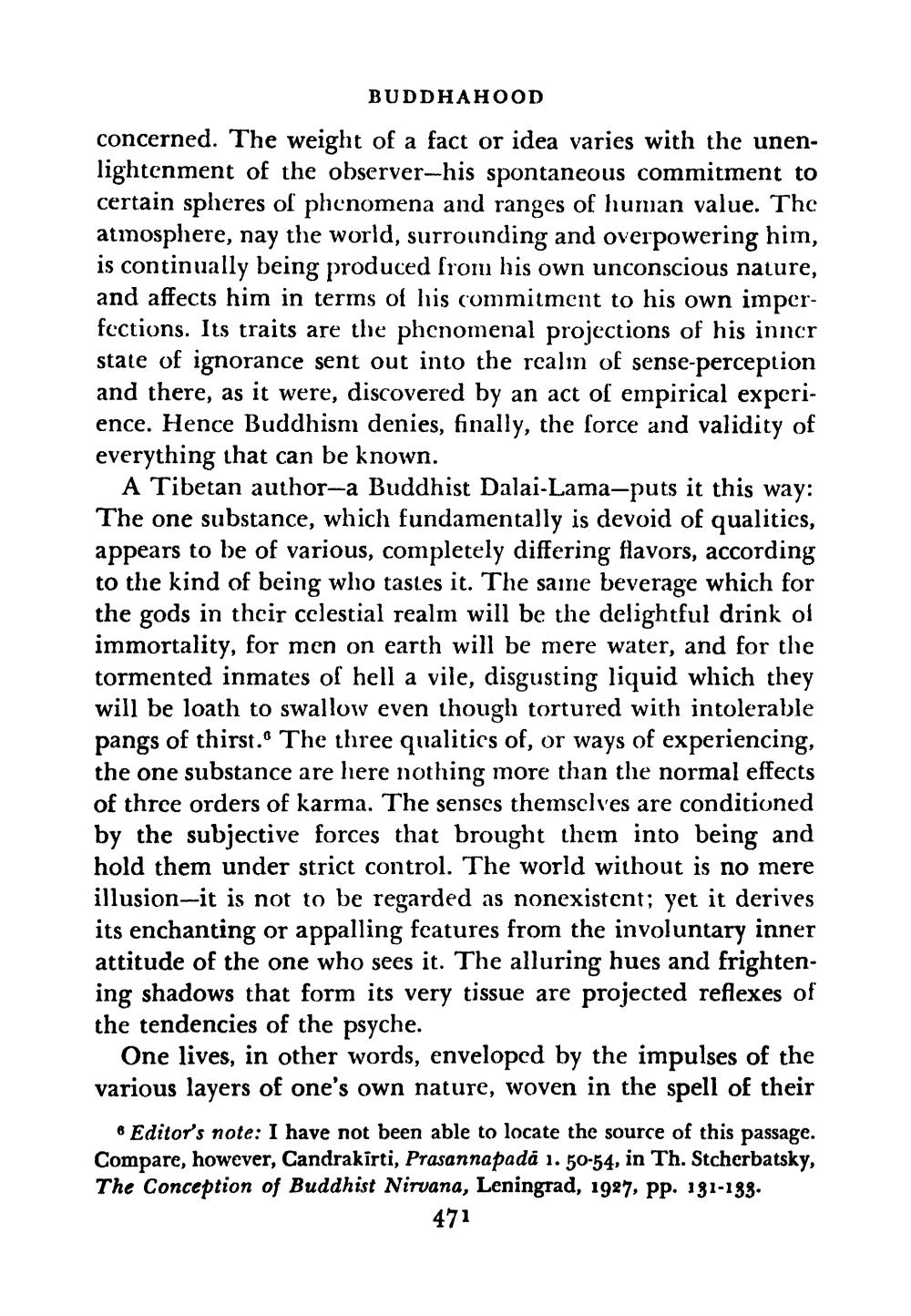________________
BUDDHAHOOD
concerned. The weight of a fact or idea varies with the unenlightenment of the observer-his spontaneous commitment to certain spheres of phenomena and ranges of human value. The atmosphere, nay the world, surrounding and overpowering him, is continually being produced from his own unconscious nature, and affects him in terms of his commitment to his own imperfcctions. Its traits are the phenomenal projections of his inner state of ignorance sent out into the realm of sense-perception and there, as it were, discovered by an act of empirical experience. Hence Buddhism denies, finally, the force and validity of everything that can be known.
A Tibetan author-a Buddhist Dalai-Lama-puts it this way: The one substance, which fundamentally is devoid of qualities, appears to be of various, completely differing flavors, according to the kind of being who tastes it. The same beverage which for the gods in their celestial realm will be the delightful drink of immortality, for men on earth will be mere water, and for the tormented inmates of hell a vile, disgusting liquid which they will be loath to swallow even though tortured with intolerable pangs of thirst. The three qualities of, or ways of experiencing, the one substance are liere nothing more than the normal effects of thrce orders of karma. The senses themsclves are conditioned by the subjective forces that brought them into being and hold them under strict control. The world without is no mere illusion-it is not to be regarded as nonexistent; yet it derives its enchanting or appalling features from the involuntary inner attitude of the one who sees it. The alluring hues and frightening shadows that form its very tissue are projected reflexes of the tendencies of the psyche.
One lives, in other words, enveloped by the impulses of the various layers of one's own nature, woven in the spell of their
6 Editor's note: I have not been able to locate the source of this passage. Compare, however, Candrakirti, Prasannapadá 1. 50-54, in Th. Stcherbatsky, The Conception of Buddhist Nirvana, Leningrad, 1927, pp. 181-188.
471




